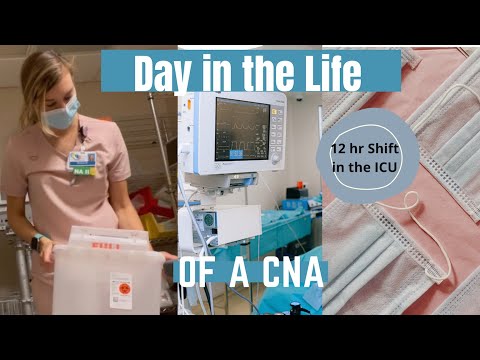A Certified Nursing Assistant (CNA) plays a crucial role in the day-to-day operations of a hospital, providing essential care and support to patients and medical staff. As a CNA, you become the backbone of the healthcare system, ensuring patients receive the highest level of comfort and assistance during their hospital stay. From assisting with patient hygiene and administering medications to monitoring vital signs and providing emotional support, CNAs are integral in maintaining a safe and nurturing environment for patients. With your compassion and dedication, you become an advocate for those in need, helping them navigate through their medical journey. Your role as a CNA allows you to form deep connections with patients, offering a sense of empathy and understanding during difficult times. Furthermore, CNAs work closely with doctors and nurses, collaborating as part of a multidisciplinary team to ensure seamless patient care. By mastering a wide range of skills, including communication, organization, and problem-solving, CNAs contribute to the efficient functioning of the hospital and the overall well-being of its patients. Embark on a rewarding career as a CNA, embracing the opportunity to make a positive impact on the lives of those in need.

Roles and Responsibilities of a Certified Nursing Assistant (CNA) in a Hospital
| Role | Description |
|---|---|
| Patient Care | A CNA provides direct patient care, assisting with activities of daily living (ADLs) such as bathing, dressing, and feeding. They also monitor and record vital signs, report any changes in patient condition, and assist with mobility and transfers. |
| Medication Administration | CNAs are responsible for administering medications as prescribed by healthcare professionals. This includes preparing and administering oral medications, applying topical ointments, and assisting with medication management. |
| Documentation | Accurate documentation is crucial in healthcare, and CNAs play a vital role in maintaining patient records. They document observations, interventions, and any changes in patient status, ensuring the healthcare team has access to up-to-date information. |
| Mobility Assistance | CNAs assist patients with mobility and ambulation, ensuring they maintain their physical independence. This involves helping patients move from beds to chairs, aiding in walking or using assistive devices, and implementing fall prevention protocols. |
| Emotional Support | Providing emotional support to patients is an essential aspect of a CNA’s role. CNAs engage in active listening, empathize with patients, and offer reassurance and comfort during challenging times. They play a crucial role in promoting the overall well-being and mental health of patients. |
| Infection Control | CNAs follow strict infection control protocols to minimize the spread of infections within the hospital. They ensure proper hand hygiene, adhere to isolation precautions, and maintain a clean and safe patient environment. |
“The Vigilant Guardian: A Thrilling Glimpse into the 12-Hour Saga of an ICU CNA”
What Does a CNA Do in a Hospital?
A Certified Nursing Assistant (CNA) plays a vital role in the healthcare system, particularly in a hospital setting. They are responsible for providing direct patient care and assisting healthcare professionals in delivering quality medical services. CNAs are trained professionals who work closely with patients, doctors, nurses, and other healthcare professionals to ensure the well-being of patients.
1. Providing Basic Patient Care
One of the primary responsibilities of a CNA in a hospital is to provide basic patient care. This includes assisting with daily activities such as bathing, dressing, and grooming. CNAs also help patients with mobility issues, assisting them with walking, using the bathroom, and transferring to and from beds or wheelchairs. They may also be responsible for turning and repositioning bedridden patients to prevent bedsores.
Additionally, CNAs monitor patients’ vital signs, such as temperature, blood pressure, pulse, and respiration rates. They are trained to recognize any abnormalities and report them to the nursing staff promptly. CNAs may also collect specimens for laboratory testing and ensure accurate documentation of patients’ medical records.
2. Assisting with Medical Procedures
Under the supervision of registered nurses or doctors, CNAs assist with various medical procedures. They may help in setting up medical equipment, such as IV poles and oxygen tanks, and ensure they are functioning correctly. CNAs also assist in the administration of medications, following the instructions provided by the healthcare professionals.
Furthermore, CNAs play a crucial role in maintaining infection control protocols. They ensure that patients and medical equipment are properly sanitized and that appropriate precautions are taken to prevent the spread of infections. CNAs may also be responsible for maintaining a clean and organized patient environment.
3. Providing Emotional Support
Patients in a hospital often experience emotional distress due to their medical conditions. CNAs are trained to provide emotional support to patients and their families during challenging times. They listen to patients’ concerns and offer reassurance and encouragement. CNAs also help patients cope with pain and discomfort by providing comfort measures such as offering blankets or adjusting their positioning for optimal comfort.
Additionally, CNAs are responsible for maintaining good communication between patients, their families, and the healthcare team. They act as a bridge between patients and medical professionals, relaying information and ensuring that patients’ needs and concerns are addressed effectively.
4. Assisting in Emergency Situations
In a hospital, emergencies can occur at any time. CNAs are trained to respond quickly and efficiently during such situations. They may assist in emergency procedures such as cardiopulmonary resuscitation (CPR), first aid, or helping to stabilize patients before the arrival of medical professionals.
CNAs also play an essential role in maintaining a safe environment for patients. They ensure that hallways and patient rooms are clear of any hazards and that patients are protected from potential accidents.
5. Collaborating with the Healthcare Team
Collaboration is crucial in a hospital setting, and CNAs are an integral part of the healthcare team. They work closely with registered nurses, doctors, and other medical professionals to ensure coordinated patient care. CNAs communicate patients’ needs and concerns to the healthcare team and assist in implementing the prescribed care plans.
CNAs also provide valuable input to the healthcare team based on their close observation of patients. They contribute to the development of individualized care plans and assist in monitoring patients’ progress. CNAs are often in direct contact with patients and can provide valuable insights into patients’ conditions and responses to treatment.
In conclusion, CNAs in a hospital setting are essential in providing quality patient care. They assist with daily activities, medical procedures, and emergency situations. They offer emotional support to patients and their families and collaborate closely with the healthcare team. The role of a CNA is vital in ensuring the well-being and comfort of patients in the hospital.
What Does a CNA Do in a Hospital:
Frequently Asked Questions
What does a CNA do in a hospital?
1. Monitoring Vital Signs: CNAs regularly check and record patients’ vital signs, such as blood pressure, heart rate, and temperature. This information helps the healthcare team assess the patient’s condition and make necessary interventions.
2. Assisting with Personal Care: CNAs help patients with their personal hygiene, such as bathing, grooming, and dressing. They also assist with toileting and ensure patients maintain cleanliness and comfort.
3. Mobility Support: CNAs help patients move around the hospital, including transferring them from beds to chairs or wheelchairs. They may also assist with ambulation exercises to improve mobility and prevent complications like muscle stiffness or bedsores.
4. Monitoring and Reporting: CNAs closely observe patients for any changes in their condition and promptly report to the nursing staff. They document vital signs, intake and output, and any other significant observations.
5. Emotional Support: CNAs provide emotional support to patients and their families by listening to their concerns, offering encouragement, and being empathetic. They help create a positive and comforting environment for patients during their hospital stay.
Overall, CNAs in hospitals play a crucial role in providing compassionate care, ensuring patient comfort, and supporting the healthcare team in delivering effective treatment.
What are the educational requirements to become a CNA in a hospital?
1. Find an Approved Program: Look for state-approved CNA training programs offered by community colleges, vocational schools, or healthcare facilities.
2. Complete the Training Program: Enroll in a CNA training program and complete the required coursework. The program includes classroom instruction and hands-on clinical training to develop the necessary skills and knowledge.
3. Clinical Experience: Gain practical experience by participating in supervised clinical rotations in a hospital or other healthcare settings. This experience allows CNAs to practice their skills in a real-world environment.
4. Pass the Competency Exam: After completing the training program, individuals must pass a competency exam to become a certified nursing assistant. The exam typically consists of a written portion and a skills evaluation.
5. State Certification: Once the exam is successfully passed, CNAs can apply for state certification. The specific requirements for certification vary by state, so it is important to check the respective state’s nursing board for detailed information.
By meeting the educational requirements and obtaining certification, individuals can pursue employment as CNAs in hospitals and other healthcare settings.
What are the responsibilities of a CNA in a hospital?
1. Patient Care: CNAs provide direct patient care, ensuring patients’ physical and emotional needs are met. This includes assisting with personal hygiene, feeding, and administering medication under the supervision of a nurse.
2. Communication: CNAs serve as a vital link between patients, families, and the healthcare team. They communicate patients’ needs, concerns, and observations to the nursing staff, facilitating effective care coordination.
3. Safety and Infection Control: CNAs follow strict protocols to maintain a safe and clean environment. They adhere to infection control measures, such as proper hand hygiene and personal protective equipment (PPE) use, to prevent the spread of infections within the hospital.
4. Documentation: CNAs maintain accurate and detailed documentation of patient care activities. This includes recording vital signs, input and output measurements, and any changes in patients’ condition.
5. Equipment and Supply Management: CNAs ensure that necessary medical equipment and supplies are readily available for patient care. They keep track of inventory, restock supplies, and report any equipment malfunctions or shortages.
6. Collaborative Care: CNAs work closely with nurses, doctors, and other healthcare professionals to provide holistic care to patients. They participate in care planning meetings, provide input about patients’ condition and progress, and assist in implementing the care plan.
By fulfilling these responsibilities, CNAs contribute to the efficient functioning of a hospital and the well-being of the patients they serve.

